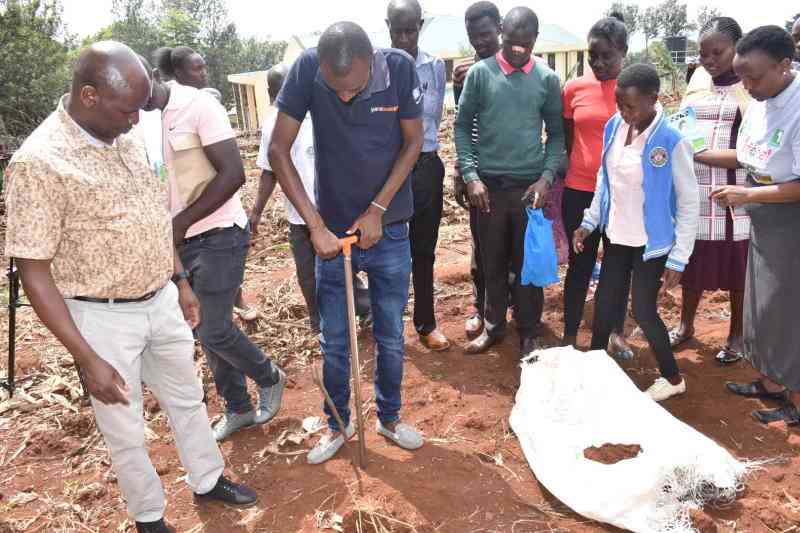×
The Standard e-Paper
Smart Minds Choose Us

Alarmed by the declining agricultural production, Kisii County has now embarked on an ambitious soil testing drive to guide farmers on fertiliser usage.
The development comes as experts claim poor agricultural practices and land fragmentation have led to the decline in agricultural production in the region. The initiative involves testing the soil PH of farms across the 10 sub-counties. This will help decide the type of fertilizer each farmer should use.